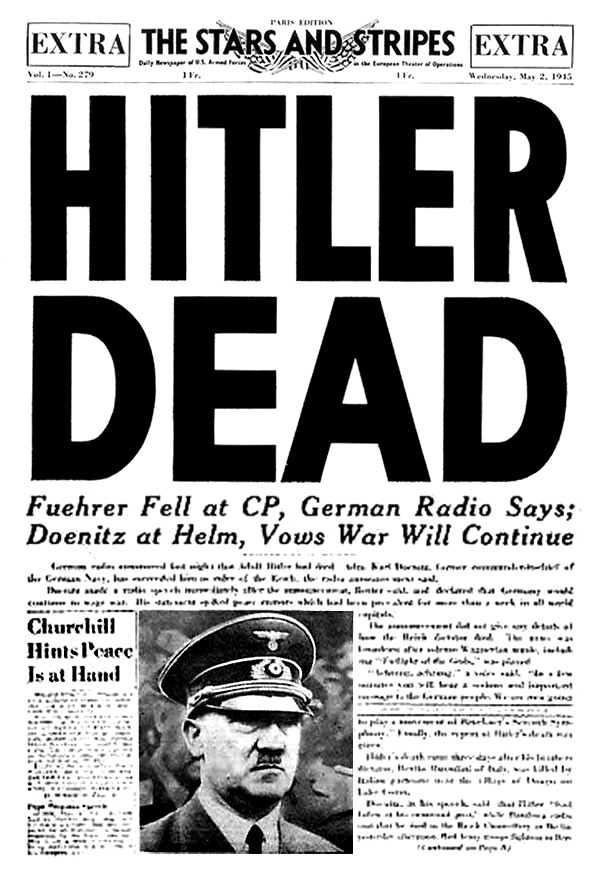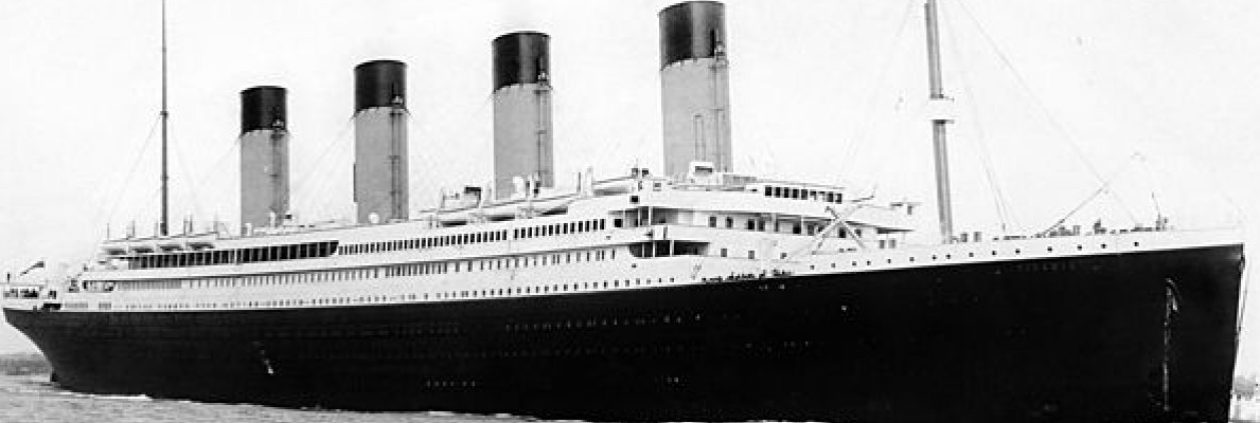
2 May 1945
Original source: U.S. Army
Public Domain/Wikimedia Commons
On 30 April 1945, Adolf Hitler–the leader and founder of the 1,000 Reich–committed suicide with his wife Eva Braun in the underground bunker beneath the Reich Chancellery. It would lead to the end of the war in Europe on 8 May 1945 when Germany unconditionally surrendered to Allied powers.
Since the defeat of German forces in the Battle of Stalingrad in 1943, it had become increasingly apparent that Allied forces had turned the tide. Germany had been pushed out of North Africa at this point, faced Allied armies in Italy, and of course on 6 June 1944 the Allied invasion of Europe had occurred. An attempt on his life was unsuccessful in July 1944 (he was saved when the briefcase with the explosive was pushed under a heavy table) but resulted in imprisonment and executions for many who were involved. Field Marshal Rommel was forced to commit suicide rather than a public court martial.
Hitler had become more erratic, and many were concerned with his mental state. After withdrawing to the underground bunker in January 1945, he met with Hermann Goering, Heinrich Himmler, and Joseph Goebbels. By 22 April 1945 though he realized the war had been lost with Soviet troops now in Berlin. On 23 April, Goering seeing that Hitler was encircled in Berlin, tried to take over as his presumed successor. Hitler stripped him of his powers and orders his arrest (this was futile since Goering surrendered himself to American forces). Himmler also had hopes of succeeding Hitler. In April, he was negotiating through a Swedish diplomat and with the Americans. When Hitler learned of this, he was stripped of his powers and his arrest ordered. Himmler tried to escape posing as an ordinary soldier but was caught and arrested. He committed suicide by taking poison.
By the end of April most of his aides and lieutenants (with some exceptions such as General Krebs) had deserted him with only Goebbels and Martin Bormann staying along. Albert Speer had declined to carry out Hitler’s orders to carry out a scorched earth policy in Berlin. Believing Germany had been unworthy of his genius and allowed themselves to be defeated, he decided to commit suicide. He married his long-time mistress Eva Braun in the early hours of 29 April 1945. He then dictated his last will and political testament that justified what he had done. The will itself is quite short while the separate political testament that laid out a defense of his life and work, as well as appointing those who would lead the German government after his death.
In the afternoon of 30 April 1945, Hitler pointed a gun to his head (though he may have taken poison as well) and committed suicide while Eva took poison. Their bodies were burned, in accordance with his instructions, in the Chancellery garden. Goebbels transmitted a message to Admiral Karl Doenitz that Hitler had died and appointed him Reich President. Six hours later Goebbels and his wife committed suicide after poisoning their six children with cyanide.
Hitler’s death was broadcast on 1 May 1945 by Hamburg Radio. On 2 May 1945, German troops in Italy surrendered (it was signed on 29 April 1945) and Berlin surrendered to Russian Marshal Georgi Zhukov. More surrenders of German forces would follow. German forces in Denmark, the Netherlands, and northwestern Germany surrendered to Field Marshal Bernard Montgomery on 4 April 1945 (effective the next day). The German Ninth and Twelve armies surrendered to U.S. forces.
Sources:
Books
Snyder, Lewis: Encyclopedia of The Third Reich, Marlowe & Company, New York, 1976
Internet
“Adolf Hitler | Biography, Rise to Power, History, and Facts.” Encyclopedia Britannica, 30 Apr. 2024, www.britannica.com/biography/Adolf-Hitler/World-War-II.
Sullivan, Missy. “Adolf Hitler Commits Suicide in His Underground Bunker.” HISTORY, 29 Apr. 2024, www.history.com/this-day-in-history/adolf-hitler-commits-suicide.
Chen, C. Peter. “World War II Database: Your WW2 History Reference Destination.” WW2DB, ww2db.com.
